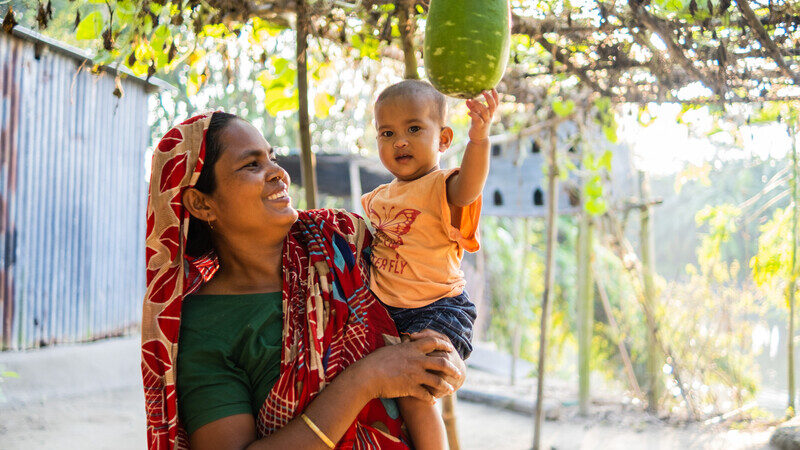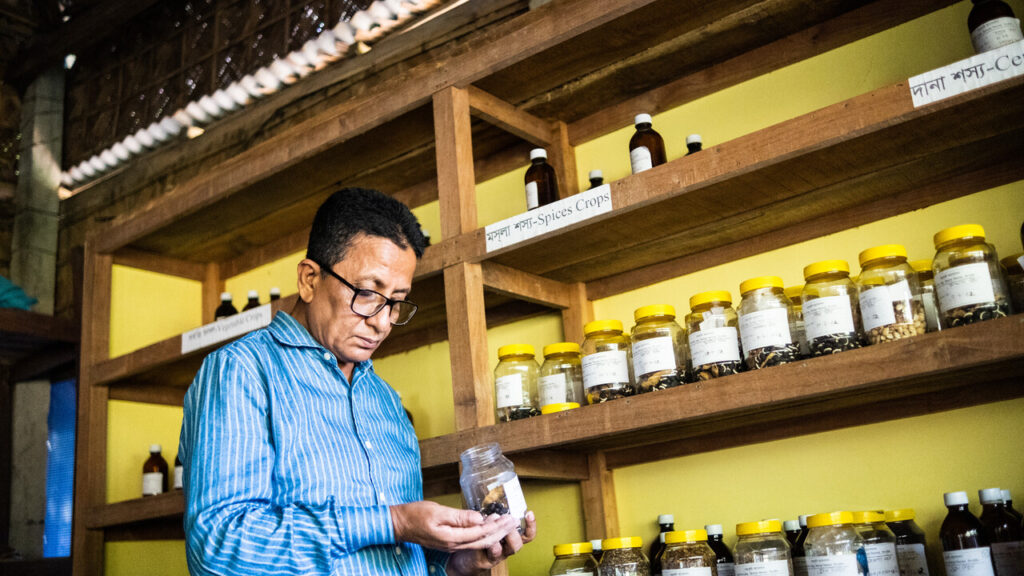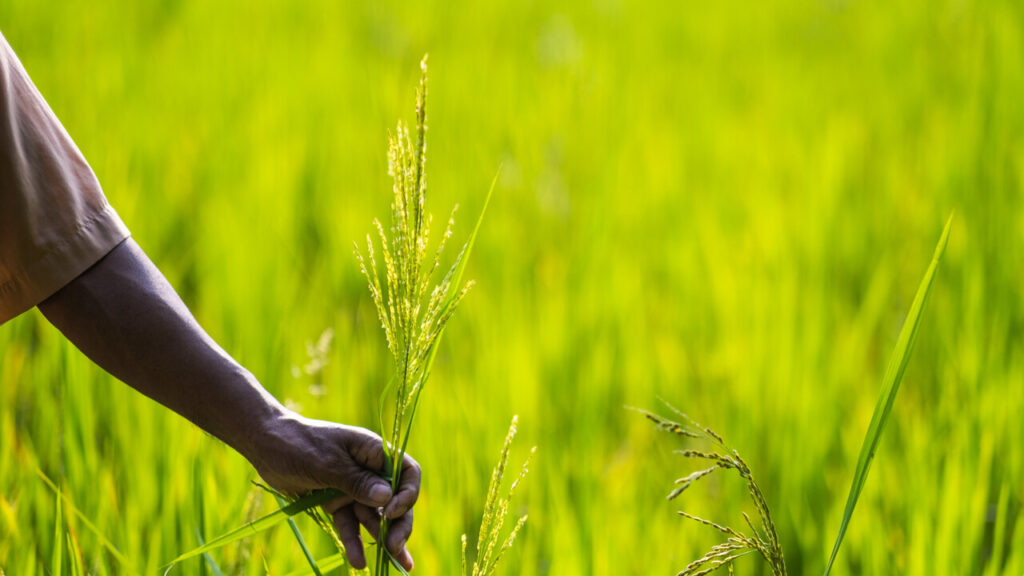Sowers and reapers: The struggle for seed sovereignty in Bangladesh

CAFOD’s campaign to fix our broken food system is deeply rooted in our Catholic faith and its teachings. Find out how we drew upon scripture to focus on seeds and the plight of farmers around the world.
“One sows and another reaps” (John 4:37).This proverb touches on our basic sense of what is and isn’t fair. When one person does all the work and another benefits, injustice reigns. “You will plant but not harvest; you will press olives but not use the oil, you will crush grapes but not drink the wine” (Micah 6: 15). These are signs that things are going wrong in society.
By contrast, everyone enjoying the work of their own hands epitomises justice and balance: “They will build houses and dwell in them; they will plant vineyards and eat their fruit. No longer will they build houses for others to inhabit, nor plant for others to eat” (Isaiah 65: 21).
Spiralling injustice
Salina (pictured above on her farm) is an organic farmer in Bangladesh. She describes what happened when she was relying on corporate seeds sold by big companies:
“When I bought seeds from the market, my perception was that they must be good seeds. […] But after I sowed the seeds, after a few days the plants started turning reddish, because they required chemical fertiliser. So, by then, whether I liked it or not, I had to buy the chemical fertiliser or I’d lose my entire crop. Sometimes I borrowed money from my neighbours to buy it, and had to pay it back with interest.”
She continues:
“At that time me and my husband were always fighting, because there wasn’t enough money for everything we needed to buy to farm, let alone anything else. There was a lot of struggle at that time. […] I had to borrow food from my husband’s older brother, which really did not feel good. I felt ashamed.”
Stolen seeds
Salina now works with CAFOD’s partner UBINIG, Policy Research for Development Alternative. UBINIG set up a centre in Tangail, a rural part of Bangladesh, in which native seeds and crops are stored and shared among farmers. This allows farmers freedom to use, swap and exchange their own seeds rather than reply on corporate seeds – something that farmers across the world have done for generations.

But with half of the world’s seeds now owned by large private businesses, there is a struggle over who owns this precious resource which provides the source for the food we eat.
Jony (above in his seed store room), the director of UBINIG, explains the control that seed companies have over seeds:
“If a company wants to introduce a variety, even if it has been bred from varieties that used to be native to Bangladesh, they introduce it by their own name and under their own patent. So, the farmers don’t have any claim.”
The seed companies reap profit, but small-scale farmers are locked into a dependence. Without control over the seeds, or the ability to save and share them, if a flood strikes and wipes out the harvest, there is no fall-back.
There is enthusiasm in Bangladesh for what is called Nayakrishi – or ‘new agriculture’ – which avoids chemical fertilisers, pesticides and patented seeds. By saving and sharing seeds they conserve the rich diversity of crops and allow farmers to access this diversity. This preserves soil health and, in the case of a flood or a cyclone, the farmer has a back-up- seeds stored somewhere in the home.

Development loans: the devil in the detail
In the latest phase of our Fix the Food System campaign, we have turned our attention to the World Bank and the conditions on some of their financing to low-income countries. In some cases, these conditions require implementation of seed regulations that reduce farmers’ access to native seeds.
Learn more about CAFOD’s campaign to fix the food system
This kind of money-lending is a far cry from that of the Bible. A custom referred to in the Old Testament is taking a person’s cloak as a deposit for a loan, known as a pledge.
“When you make your neighbour a loan of any kind, you shall not go into the house to take the pledge. You shall wait outside, while the person to whom you are making the loan brings the pledge out to you. If the person is poor, you shall not sleep in the garment given you as the pledge. You shall give the pledge back by sunset, so that your neighbour may sleep in the cloak and bless you; and it will be to your credit before the Lord your God.”
Deuteronomy 24:10-13
Trust, courtesy and mercy towards the poor are written into these moral codes, to avoid profiteering or other secret motives of the lender.
“So that the sower and the reaper may rejoice together” (John 4: 34)
Nayakrishi farming also thrives on an ethos of courtesy, mercy and trust. Salina says: “Though each farmer individually may own a small piece of land, the land as a whole is a common thing – it is important that all the individual farmers work together to develop the land as a whole.”
This is a perfect description of what Catholic social teaching calls “the common good.”